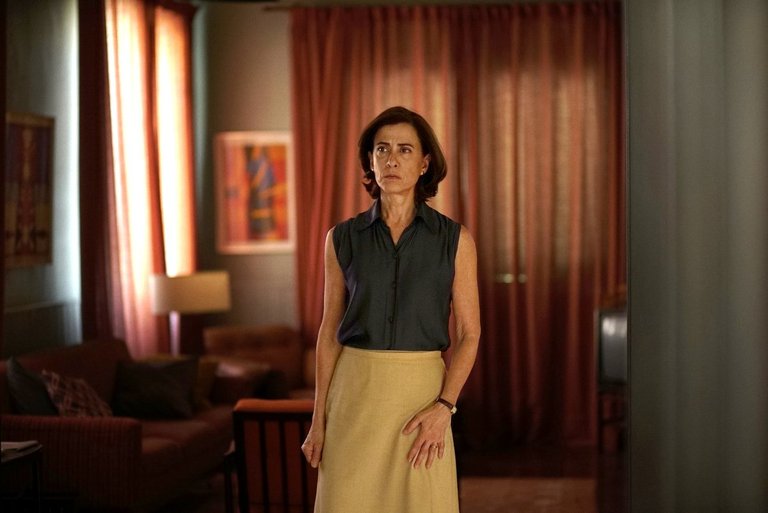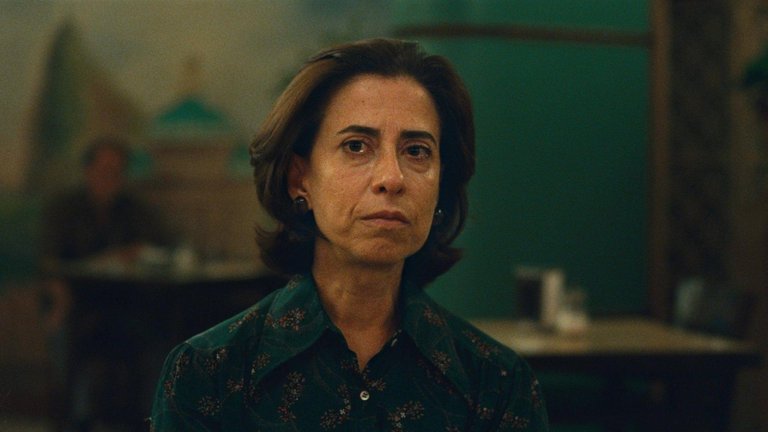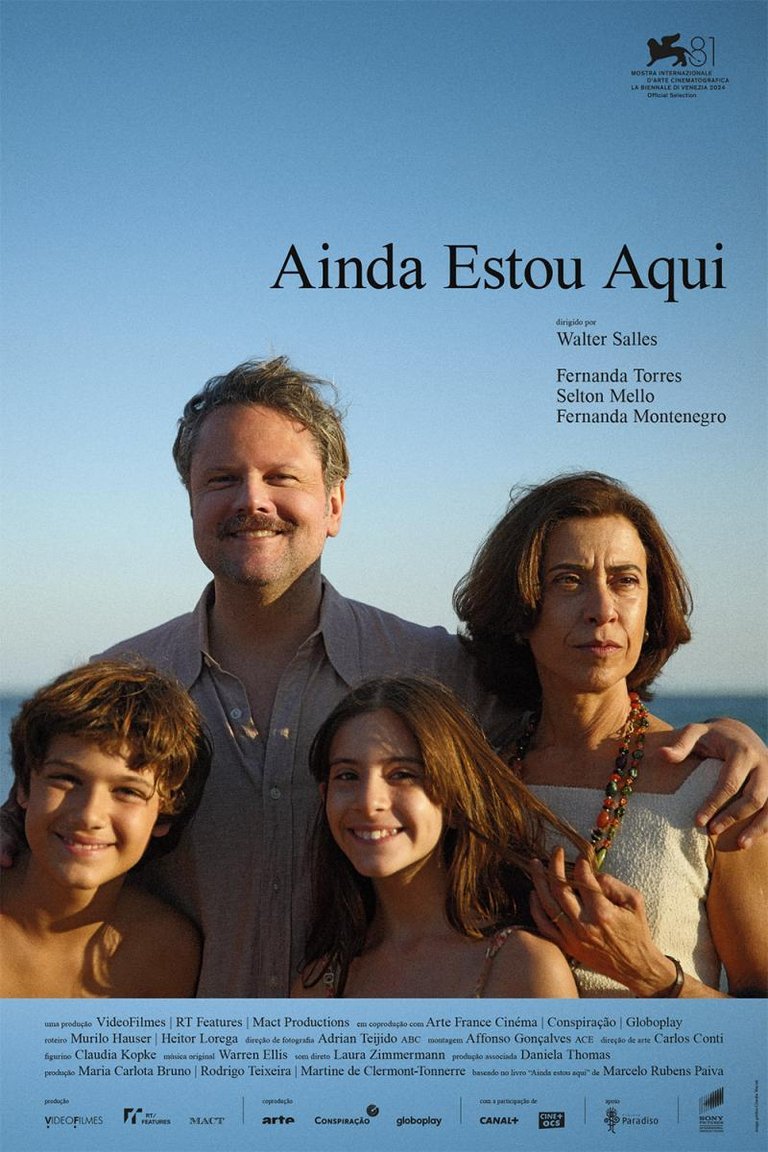
Do you remember City of God, the famous film by Fernando Meirelles that went around the world? In 2002, Brazil chose it to represent the country at the Oscars in the category of Best International Film and the academy didn't include it in the final list. Such was the commotion that the following year, it was nominated in four other categories - it couldn't compete in the one that had already been discarded - editing, photography, direction and adapted screenplay, but it was the night when The Lord of the Rings: The Return of the King won it all. So when was the last time a Brazilian film was nominated for the Oscar for Best International Film? In 1998, when Central Station arrived at the gala, but lost the category against a certain La vita è bella.
¿Recuerdan City of God, la famosa película de Fernando Meirelles que le dio la vuelta al mundo? En 2002, Brasil la eligió para representar al país en los Oscars en la categoría de Mejor Película Internacional y la academia no la incluyó en la lista finl. Tal fue el revuelo que al año siguiente, fue nominada a otras cuatro categorías - no podía competir en la que ya había sido descartada - edición, fotografía, dirección y guion adaptado, pero fue la noche en que The Lord of the Rings: The Return of the King lo ganó todo. Entonces, ¿cuándo fue la última vez que una película brasileña estuvo nominada al Oscar a Mejor Película Internacional? En 1998, cuando Central Station llegó a la gala, pero perdió la categoría contra una tal La vita è bella.
I make this introduction because this year, after 27 years, Brazil is once again nominated in the category with Ainda estou aqui and the curious thing is that the director of this film is the same director of Central Station: Walter Salles. So this man must know something about cinema. Ainda estou aqui (I'm still here) is a biographical and political drama that tells a story as powerfully painful as it is sadly frequent. Dozens of times we have heard about how military governments and authoritarian dictatorships were responsible for eliminating their ideological and political enemies through armed repression, persecution, torture and forced disappearances that often ended in unresolved cases of unfound bodies. The most famous cases in South America may be those of Pinochet in Chile and Videla in Argentina, but in the same decade there were many others, such as Trujillo in the Dominican Republic, Chun Doo-hwan in South Korea (although this was in the eighties) and that of Humberto de Alencar Castelo Branco who governed Brazil for almost two decades, from the mid-60s to the mid-80s. It's in that framework, specifically in the year of 1970, in which Salles' film is set. It tells the story of the Paiva family, whose head of household is the former leftist deputy Rubens Paiva. Years ago Paiva had gone into exile, but upon returning to the country he decided not to dedicate himself to politics anymore due to the risks that this represented. Or at least that's what his wife Eunice believed.
Hago esta introducción porque este año, después de 27 años, Brasil vuelve a estar nominada en la categoría con Ainda estou aqui y lo curioso es que el director de esta película es el mismo director de Central Station: Walter Salles. Así que algo de cine debe saber este hombre. Ainda estou aqui (I'm still here) es un drama biográfico y político que cuenta una historia tan poderosamente dolorosa como tristemente frecuente. Decenas de veces hemos oído hablar sobre cómo gobiernos militares y dictaduras autoritarias se encargaron de eliminar a sus enemigos ideológicos y políticos a través de la represión armada, la persecución, la tortura y las desapariciones forzadas que muchas veces terminaron en casos no resueltos de cadáveres no encontrados. Los casos más famosos en el sur de américa tal vez sean los de Pinochet en Chile y Videla en Argentina, pero en la misma década hubo muchos otros, como Trujillo en República Dominicana, Chun Doo-hwan en Corea del Sur (aunque esta fue en loa años ochenta) y la de Humberto de Alencar Castelo Branco que gobernó Brasil durante casi dos décadas, desde la mitad de los años 60 hasta la mitad de los años 80. Es en ese marco, específicamente en el año de 1970, en el que se ambienta la película de Salles. En ella se cuenta la historia de la familia Paiva, cuya cabeza de hogar es el ex diputado izquierdista Rubens Paiva. Años atrás Paiva se había exiliado, pero al volver al país decidió no dedicarse más a la política debido a los riesgos que eso representaba. O al menos eso era lo que creía su esposa Eunice.

Until one day, some men without uniforms and without any type of identification take Rubens to give statements. Eunice, scared by the situation and what had been happening in the country, tries to stay calm and ensure the safety of her children, but the next day both she and one of her daughters are forcibly taken to testify as to how her husband was taken away and then Eunice knows true terror and a gloomy place that could well be an anteroom to hell.
Hasta que un día cualquiera, unos hombres sin uniforme y sin ningún tipo de identificación se llevan a Rubens a prestar declaraciones. Eunice, asustada por la situación y lo que había estado ocurriendo en el país, intenta mantener la calma y velar por la seguridad de sus hijos, pero al día siguiente tanto ella como una de sus hijas son llevadas a la fuerza a declarar tal como se llevaron a su esposo y entonces Eunice conoce el verdadero terror y un sombrío lugar que bien podría ser una antesala del infierno.
Interrogations, torture, psychological games, imprisonment... we know the modus operandi of this type of regime. It's not new anymore. Not for us. But then, for Eunice it was. One thing were the rumors on the street, the alerts, the unpleasant military controls in the streets, the kidnappings of foreign ambassadors by the National Liberation Action (ALN) movement that exchanged them for political prisoners, and the declarations of a government that called these organizations terrorists; But it's quite another to be kidnapped by state forces and told - something you didn't know - that your husband has been clandestinely collaborating with the resistance. Finding herself alone at the moment, Eunice decides to take the bull by the horns and becomes at the same time a protective mother, pillar of the home, defender of her husband's rights and a woman who fought every day for the well-being and future of her children. Although it's Rubens Paiva who is forcibly detained, his wife Eunice is the true protagonist of the story. This is a strong, loving, complex character and Fernanda Torres' performance is extraordinary because she manages to show not only the different mental, emotional and psychological states in the most diverse situations but also because she turns Eunice into a real person who crosses the screen. You hear her talk as if she were in the room, feel her pain, her fear and her strength as if she were with you and you feel like hugging her and helping her in any way.
Interrogatorios, torturas, juegos psicológicos, encarcelamiento.... conocemos el modus operandi de este tipo de regímenes. Ya no es nuevo. No para nosotros. Pero entonces, para Eunice sí lo era. Una cosa eran los rumores en la calle, las alertas, los desagradables controles militares en las calles, los secuestros de embajadores extranjeros por parte del movimiento Acción de Liberación Nacional (ALN) que los cambiaban por presos políticos y las declaraciones de un gobierno que llamaba terroristas a estas organizaciones; pero otra muy diferente es que te secuestren las fuerzas del estado y te cuenten - algo que no sabías - que tu esposo ha estado colaborando de manera clandestina con la resistencia. Viéndose sola de momento, Eunice decide tomar al toro por los cachos y se convierte a la vez en madre protectora, pilar del hogar, defensora de los derechos de su esposo y en una mujer que luchó día a día por el bienestar y el futuro de sus hijos. Aunque es Rubens Paiva quien es retenido por la fuerza, su esposa Eunice es la verdadera protagonista de la historia. Se trata de un personaje fuerte, amoroso, complejo y la actuación de Fernanda Torres es extraordinaria porque consigue mostrar no sólo los diferentes estados mentales, emocionales y psicológicos en las más diversas situaciones sino porque también convierte a Eunice en una persona real que atraviesa la pantalla. La escuchas hablar como si estuviera en la sala, sientes su dolor, su miedo y su fuerza como si estuviera contigo y sientes ganas de abrazarla y de ayudara de cualquier forma.

So the Golden Globe won by Torres in the Best Drama Actress category is more than deserved, can she also win the Oscar? The competition is tough, but it would be nice if international talents were increasingly recognized in these main categories as well. I have always loved Emma Stone, but last year I would have loved if they had given the Oscar to Sandra Hüller for what she did in Anatomy of a Fall, will Fernanda Torres prevail this year over Demi Moore, Mikey Madison and company? In less than a month we will know.
Así que el Globo de Oro obtenido por Torres en la categoría de Mejor Actriz Drama está más que merecido, ¿podrá llevarse también el Oscar? La competencia está ruda, pero estaría bueno que talentos internacionales fueran cada vez más reconocidos en estas categorías principales también. Amo a Emma Stone, desde siempre, pero el año pasado me habría encantado que le hubieran dado el Oscar a Sandra Hüller por lo que hizo en Anatomy of a Fall, ¿se impondrá Fernanda Torres este año a Demi Moore, Mikey Madison y compañía? En menos de un mes lo sabremos.
Ainda estou aqui is based on the memoirs of Marcelo Rubens Paiva, Rubens' son and a character that appears in this film, which is also competing in the categories of Best International Film and the award of the night: Best Film. Perhaps it deserved another nomination because both the editing and the cinematography are very well done. Something I really liked about I'm still here is that it doesn't start abruptly with the dramatic part. The first half hour of the film focuses on showing the daily life of Rubens, Eunice and their five children, Veroca, Eliana, Nalu, Marcelo and Babiu. We see them sharing with family and friends, taking pictures, playing with their pet, laughing with each other, having family dinners, listening to upbeat 70's music (the period aesthetics are great too); and although little by little the political shadow and danger is introduced through news, rumors and some characters' comments, when the worst happens - which you already saw coming, of course - you've become so attached to each character that you feel it as a personal affront. Through the screen, the Paiva's open the doors of their home to the viewer and without knowing it, the viewer opens the doors of his or her heart to these warm, funny, but also strong, resilient and wounded characters. *Ainda estu aqui_ goes straight to the list of the best movies I've seen in the last months and even though it has just been released - at least here in Chile - I am recommending it to everyone to go see it at the cinema, have any of you seen it yet? I'll read you in the comments.
Ainda estou aqui está basado en las memorias de Marcelo Rubens Paiva, hijo de Rubens y personaje que aparece en esta película que compite además en las categorías de Mejor Película Internacional y en el premio de la noche: Mejor Película. Quizás mereció alguna otra nominación porque tanto la edición como la fotografía están muy bien logradas. Algo que me gustó mucho de I'm still here es que no empieza abruptamente con la parte dramática. La primera media hora de la cinta se centra en mostrar la vida diaria de Rubens, Eunice y sus cinco hijos, Veroca, Eliana, Nalu, Marcelo y Babiu. Los vemos compartir en familia y con amigos, sacarse fotos, jugar con su mascota, reír unos con otros, tener cenas familiares, escuchar música alegre de los años 70 (la estética de la época está genial también); y aunque poco a poco se va introduciendo la sombra política y el peligro a través de las noticias, los rumores y los comentarios de algunos personajes, cuando sucede lo peor - que ya lo veías venir, claro - te has encariñado tanto con cada personaje que lo sientes como una afrenta personal. A través de la pantalla, los Paiva le abren al espectador las puertas de su casa y sin saberlo, el espectador abre las puertas de su corazón para estos personajes cálidos, divertidos, pero también fuertes, resilientes y heridos. Ainda estu aqui va directamente a la lista de las mejores películas que he visto en los últimos meses y aunque se acaba de estrenar - al menos acá en Chile - la estoy recomendando a todas las personas para que vayan a verla al cine, ¿alguno de ustedes ya la vio? Los leo en los comentarios.







No había leído ninguna reseña de esta película, sin embargo sabía de sus nominaciones a los Oscars, me encantaría verla antes de los premios para tener un criterio propio pero según lo que me cuántas acá, se ve que es una historia interesante, gracias por compartir. ¡Saludos!